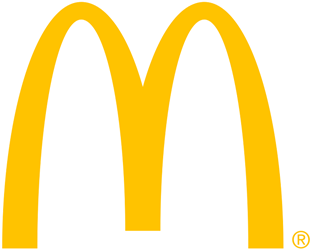Restaurant And Hospitality News – August 8, 2016

By Christine Kern, contributing writer

In news this week, Disney has a new patent on foot-cameras to track guest traffic; McDonald’s is ready to roll out its “Experience of the Future” to U.S. locations; and Subway breaks new ground with an agreement with the Department of Labor that some say opens franchisees up to other issues with the NLRB.
Disney Gains Tracking Patent To Follow Guests Foot Patterns
Walt Disney Co. has been awarded a patent for a new type of tracking technology that allows the park to track guests through their feet, according to The Star. While the company says it has no immediate plans to implement the technology, the project is part of Disney’s ongoing innovative research. The technology works by using sensors and cameras to identify individual guests as they make their way through the park. The data gathered can then “be used to output a customized guest experience,” according to Disney, including the production of souvenir photographs. The data can also be used to track common paths from ride to ride and determine typical preferences and ride wait times, according to Fox Business News.
The new technology would also be much less invasive than current tracking methods already in place, including RFID bands, retinal and fingerprint identification methods, according to the patent information. “These methods are obtrusive and some guests may not feel comfortable providing this type of biometric information to a third party.”
McDonald’s Ready To Roll Out “Experience of the Future” To U.S. Locations
McDonald’s piloted its next-generation restaurant across parts of Europe, Canada, and Australia, and now it is ready to roll out the “Experience of the Future” to U.S. Locations, according to Business Insider. The fast-food chain is banking on technology to help boost the customer experience and boost sales across its restaurants. The initiative adds Samsung Galaxy tablets to its stores, which allow customers to order custom “gourmet” burgers and even provide entertainment.
“Experience of the Future” is still in the pilot phase, which means that it remains amorphous. Clearly, Business Insider states, the power of the tablet for expediting the ordering process is immense, allowing for customization of orders without the need for a frontline worker to take them. While McDonald’s does not yet have a U.S. rollout plan in place, in a Q2 earnings call, CEO Stephen Esaterbrook said it is a “very exciting opportunity across the next few years in the U.S.” As of that call, more than half of the Canadian restaurants, almost 40 percent of U.K. locations, and 25 percent of French stores have been fully converted to the new initiative, with table service in approximately 80 percent of all restaurants.
According to enterprise mobility management company SOTI "Experience of the Future," which also involves updating the look of the stores, is "the biggest investment and operational change in its 41 year history in the U.K."
"Technology has an important role to play in all walks of life, including our customers' eating out experience, so the changes we're making as part of the 'Experience of the Future' program bring us closer to the way people live their lives today," McDonald's UK IT head Doug Baker
said in the press release. "We pride ourselves on listening to customers and providing an outstanding experience; innovations such as tablets help provide this experience and have been extremely popular with customers."
Subway Deal With Regulators Could Put It In Hot Water With NLRB
Subway and the U.S. Department of Labor’s Wage and Hour Division have reached a voluntary agreement regarding how the franchisor’s operators pay their workers, but the deal may ultimately put the chain in hot water with the NLRB, according to The Nation’s Restaurant News.
Calling the deal “the first of its kind,” between a franchisor and the DOL, both parties agreed to work together to educate franchisees on wage and hour laws. Under the agreement, franchisees’ compliance with labor laws will rise, while also “helping us to ensure that workers get paid the wages to which they are legally entitled,” division administrator David Weil explained in a Department of Labor blog post.
“Our work with Subway breaks new ground in how we can work with the regulated community – not only with employers, but with franchisors, suppliers, retailers and others – to channel their influence to ensure that all employers along a supply chain or otherwise linked in commerce play by the rules.”
But even Subway leadership asserted that they wanted to work to play by the rules, the chain came under attack from some business organizations that said that the moves makes it vulnerable to regulations under the National Labor Relations Board (NLRB). In a statement, Elizabeth Taylor, IFA vice president of government relations and general counsel stated, “Legitimate concerns now exist as to which franchisor actions cross the line and could serve as evidence of a joint employment relationship in future litigation or a government enforcement action. Without assurance that their compliance efforts will not be used against them by another government agency, or plaintiff attorneys, franchisors are caught in an inevitable Catch-22.”
“We realize that this relationship is a first of its kind and unorthodox in its nature, but we are committed to making available a platform for the Department of Labor to provide training and resources to independent franchise owners to ensure they have the tools necessary to comply with wage and hour laws,” Subway said in a statement.
